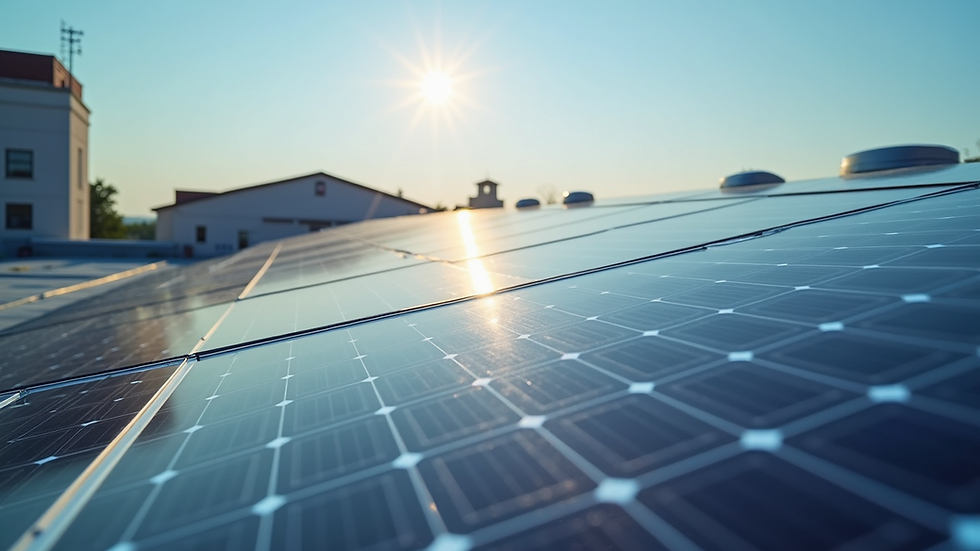Safety First: Essential Electrical Maintenance for Homes
- Katie Calhoun
- Aug 29, 2025
- 4 min read
When it comes to home safety, electrical maintenance is often overlooked. Many homeowners assume that as long as their lights turn on and their appliances work, everything is fine. However, neglecting electrical maintenance can lead to serious hazards, including electrical fires and shock. In this post, we will explore essential electrical maintenance tips that every homeowner should know to keep their homes safe and functioning properly.
Understanding the Importance of Electrical Maintenance
Electrical systems are complex and can wear down over time. Regular maintenance helps to identify potential issues before they become serious problems. Here are a few reasons why electrical maintenance is crucial:
Safety: Faulty wiring can lead to fires or electric shocks.
Efficiency: Well-maintained systems use less energy, saving you money on your bills.
Longevity: Regular checks can extend the life of your electrical systems and appliances.
Common Electrical Hazards in Homes
Before diving into maintenance tips, it is essential to understand common electrical hazards that can occur in homes. Awareness of these issues can help you take preventive measures.
Overloaded Circuits: Plugging too many devices into one outlet can cause overheating.
Frayed Wires: Damaged cords can expose wires, leading to shocks or fires.
Old Wiring: Homes built several decades ago may have outdated wiring that does not meet current safety standards.
Regular Inspections: A Key to Safety
One of the best ways to ensure your electrical system is safe is to conduct regular inspections. Here are some tips on how to perform these checks:
Visual Inspection: Look for signs of wear and tear, such as frayed wires or scorch marks around outlets.
Check Outlets: Ensure that outlets are not warm to the touch. If they are, it may indicate an overload or faulty wiring.
Test GFCI Outlets: Ground Fault Circuit Interrupter (GFCI) outlets should be tested monthly. Press the "test" button, and then the "reset" button to ensure they are functioning correctly.
Keeping Your Circuit Breaker in Check
Your circuit breaker is the heart of your electrical system. It protects your home from overloads and short circuits. Here’s how to maintain it:
Know Your Breaker: Familiarize yourself with your circuit breaker panel. Label each breaker to know which areas of your home they control.
Resetting Breakers: If a breaker trips, reset it by flipping it off and then back on. If it trips again, consult a professional.
Regular Checks: Inspect the panel for rust, corrosion, or any signs of damage.
The Importance of Professional Inspections
While homeowners can perform basic checks, it is wise to schedule professional inspections regularly. Electricians can identify issues that may not be visible to the untrained eye. Here are some benefits of hiring a professional:
Expertise: Electricians have the training to spot potential hazards.
Code Compliance: They ensure that your electrical system meets local codes and regulations.
Peace of Mind: Knowing that a professional has inspected your system can alleviate concerns about safety.
Maintaining Your Appliances
Your home appliances also require regular maintenance to ensure they operate safely and efficiently. Here are some tips:
Unplug When Not in Use: This prevents overheating and saves energy.
Check Cords and Plugs: Inspect appliance cords for damage. Replace any frayed or damaged cords immediately.
Follow Manufacturer Guidelines: Always adhere to the maintenance instructions provided by the manufacturer.
Outdoor Electrical Safety
Outdoor electrical systems can pose unique hazards. Here are some tips to keep your outdoor areas safe:
Use Weatherproof Outlets: Ensure that any outdoor outlets are weatherproof and have GFCI protection.
Check Lighting Fixtures: Inspect outdoor lighting for damage and ensure they are securely mounted.
Avoid Overloading Circuits: Be cautious when using extension cords outdoors. They should be rated for outdoor use and not overloaded.
Childproofing Your Electrical System
If you have children in your home, it is essential to childproof your electrical system. Here are some effective strategies:
Outlet Covers: Use plastic outlet covers to prevent children from inserting objects into outlets.
Cord Management: Keep cords out of reach or use cord organizers to prevent tripping hazards.
Educate Your Children: Teach them about electrical safety and the dangers of playing with outlets and cords.
Emergency Preparedness
In case of an electrical emergency, being prepared can make a significant difference. Here are some steps to take:
Know the Location of Your Circuit Breaker: Familiarize yourself with its location and how to reset it.
Have a Plan: Create an emergency plan that includes contacting a licensed electrician.
Keep a Fire Extinguisher Handy: Ensure you have a fire extinguisher rated for electrical fires in your home.
Conclusion: Prioritize Electrical Safety
Electrical maintenance is not just about keeping the lights on; it is about ensuring the safety and efficiency of your home. By following these essential tips, you can protect your family and your property from electrical hazards. Remember, when in doubt, always consult a professional. Your safety is worth it.



Comments